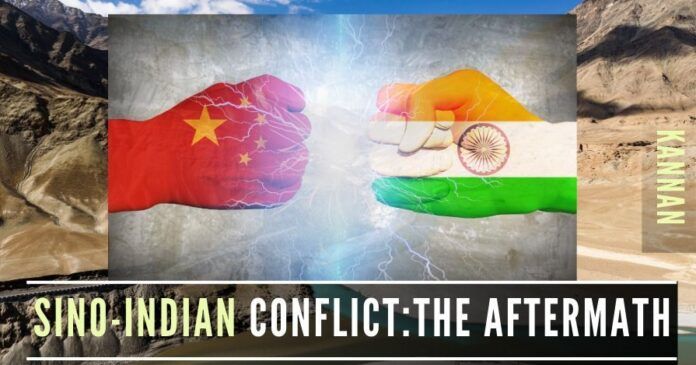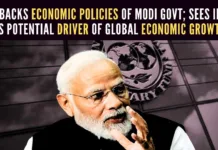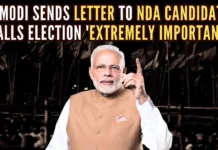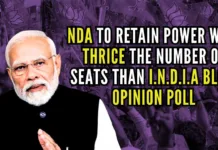
The Sino-Indian conflict has brought out fault lines that lie on both sides of the LAC and exposed both China and India
The best analysis of the recent Sino-Indian conflict was published not in any of Indian news portals, nor in the Global Times, but in the Dawn – of Pakistan by Mr. Siddiqui from Toronto[1]. He outlined reasons, why Modi decided to take on his old friend, turned foe Jinping. However, he did not emphasize why China started the conflict in the first place, but now that has no significance because the conflict occurred and now being solved.
This conflict has brought out fault lines that lie on both sides of the LAC and exposed both China and India. China, being the bigger one shall bear the damage more. Unlike during and after the Dokhlam episode, the Indian government has now taken a few steps that are now irreversible, at least not in the next few years. From banning Chinese Apps to mandating no equipment for power plants, India has responded.
Thanks to Narasimha Rao, India kicked out Nehruvian Economics and put an end to the license raj and the Indian economy started reviving on its own.
India being a democratic nation, even the solution was questioned and applauded by people depending on where their interests are. While Congress leaders, inspired by their insipid leaders raised a flurry of questions that have started to bore the people, BJP supporters trumpeted on the government’s achievements and Shivraj Singh Chouhan went a step further and attributed divinity to Modi. It seems BJP is on the verge of transforming itself into Congress.
The fact, however, was something different. The initiation for the Special Representative level talks was from China, while India was attempting to use the existing mechanisms to solve the conflict[2]. Perhaps, the Chinese leadership has realized what they started to be a cat-fight has turned into something big to handle. To suppress the dissidence at home i.e., both in the CCP and in the general public on many issues varying from the origin and spread of the virus to the shrinking economy to Hong Kong protests, it was useful to engage in a limited conflict with India – something similar to Dokhlam. However, the new in-charge of Western Theatre Command perhaps wanted to prove something to Jinping and India – and so the conflict has taken a bloody turn[3]. Instead of demoralizing India, this move proved to be counterproductive. While Indian soldiers martyred in the confrontation received national honors, the dead Chinese soldiers were not even acknowledged by China. This has created a new problem within China because while Gobbles Times, oops, Global Times portrays China as some great nation, in reality, it was worse than Indian Maoists or any regular terrorist outfits, who acknowledge their dead. Thus, the onus of returning to normal was imperative to the Chinese and so they initiated the talks and India used the opportunity.
China, being a country practicing capitalism got a bitter lesson – Never enrage your customers. It doesn’t matter whether a customer is a bigger or smaller one – any business loss results only in loss.
For India, the conflict has acted as an event that exposed its limitations that are intrinsic to the economy. There was no other event that highlighted the criticality of being self-reliant in manufacturing. Yes, from Nehru to Modi almost all prime ministers have thought of this topic. Nehru established vast empires of PSUs that have in fact turned out to be white elephants. Nationalization of Banks and forced acquisition of TATA Airlines too proved how bad any step that the government takes on self-reliance was. Thanks to Narasimha Rao, India kicked out Nehruvian Economics and put an end to the license raj and the Indian economy started reviving on its own.
As the prime minister said, the winds are favoring Indian sails. The point is whether he has a crew that is capable enough to steer the ship correctly?
But, even two decades after Narasimha Rao, no prime minister worked seriously to take the reforms initiated by Rao to their logical end. Perhaps, parliamentary democracy is to be blamed. Modi, on the records, has admitted he could not comprehend the utility of GST while he was Gujarat Chief Minister when he strongly advocated for it as a prime minister. Still, the GST that we have is not what we should be having – both in its form and in implementation.
The Chinese conflict has exposed how much India relies on China for some crucial imports ranging from Pharma to industrial components. How to be self-reliant in such a scenario? We need reforms from education to labor laws to taxation to corporate governance – and in some more fields.
Though skill development was one topic Modi stressed during his first tenure, it never took off – just like many other projects. In hindsight, the prime minister might be thinking how that particular program, if successful could come handy to India now. Whether he will take the concerned minister to the task or not will remain an open question forever. In fact, skill development is not only for labor but reforming higher education is something that is long overdue. Many times industry leaders have lamented the inadequate knowledge and skills of our engineers. On the medical front, instead of creating a new diploma course in allopathy, the government has botched up the entire system by allowing non-allopathy doctors to complete a one year course.
Coming to society, the latest episode of sexual exploitation of minor girls in Chitrakoot poses a problem that is inherent to our society, police, judiciary, and polity have already become immune to. In fact, we have come to a stage where such exploitation is considered normal. All the long speeches when migrants were walking out of Mumbai and Delhi have disappeared into thin air. They are now walking back to metros. The inequalities in the society were results of lack of governance in some states – and nothing much is going to happen in the near future.
How can the government address the inequality problem? First, by addressing the organized union problem and reforming the labor laws. It is the organized unions that have in fact let inefficiency creep into the manufacturing. On one end they do enjoy more than their share and on the other side, they deny an opportunity to others. Standardization of PF to pension using Aadhar may perhaps reduce the exploitation that the temporary/contract workforce suffers from.
As the prime minister said, the winds are favoring Indian sails. The point is whether he has a crew that is capable enough to steer the ship correctly? There is a trust deficit factor in the government on those who are outside of its ranks. Though there were some attempts to improve this by inducting some new faces, these endeavors are not sufficient. Another vital thing is the ability to push through these reforms and get these implemented without creating much uproar.
It is one thing to wish to be self-reliant, but entirely different to really become one. Unless the PM gets some reliable people who can deliver results, self-reliance will remain only in speeches. And, that is fatal to national interests, in the present circumstances as failure to rise now may push India back to the days before Rao.
Note:
1. The views expressed here are those of the author and do not necessarily represent or reflect the views of PGurus.
References:
[1] Modi’s trap – Jul 04, 2020, Dawn
[2] Beijing proposed Wang-Doval talks after Galwan to reduce tensions – Jul 8, 2020, Indian Express
[3] Amidst standoff, China appoints new commander for troops overseeing India border – Jun 05, 2020, Economic Times
- Prashant Kishor & the quest for opposition - February 2, 2022
- Return of Taliban and the future of the world - August 18, 2021
- Time for BJP to stop quoting Indian History and learn something from it. - May 3, 2021











@pGurus1 you come out with probing articles always. But without bringing accountability to bureaucracy, things will never change in our Country. USA, UK & Australia have done giving power to elected party to throw out non-performers. Not in India. Series of commissions sat to suggest “administrative reforms”. Main issue on accountability never got introduced since it will destroy the kingdom of Babus. @SreeIyer1